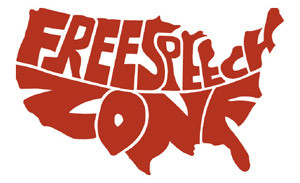 Donald J. Trump will soon ascend to the most powerful office in the history of the world. He is used to the worlds of business and show business, and his unfamiliarity with politics was his greatest qualification for many voters who desired change above all else. Trump, though, needs to transition between these worlds. He is no longer merely a billionaire with a tv show.
Donald J. Trump will soon ascend to the most powerful office in the history of the world. He is used to the worlds of business and show business, and his unfamiliarity with politics was his greatest qualification for many voters who desired change above all else. Trump, though, needs to transition between these worlds. He is no longer merely a billionaire with a tv show.
There is more than a whiff of the monarchy between the lines of Article 2. Presidents can unilaterally pardon and grant reprieves to anyone buried in the criminal justice system, and even those who have not yet slithered into a courtroom. As commander-in-chief, presidents are unrivaled in their control of the military. POTUS is our chief diplomat, the only American able to initiate the treaty process. Overseas, he is the face of America, the primary exporter of our values. The Anti-federalists, those hearty opponents of the new Constitution, worried the new president would stride across the nation as a colossus, unbound by the government that created him.
History has proven their fears well-placed, but this new president was also leveled by his surroundings. The president is elected. Even his title, Mr. President, is shorn of nobility. Presidents occupy no throne and wear no crown. They are subject to the law and are limited now in their duration. Presidents are spawned from a republic where the people wield the ultimate authority. Presidents should step into the office aware of both their own means and the deference they owe the citizenry. Like any government employee, the president serves the public.
Many factors have exploded the executive’s raw power. World events have turned him into the face of freedom. Our resources and the genius of our system have created an economic engine that is normally the world’s envy. Our military might is still unrivaled, even when stagnant or in mild decline. The development of the electronic media–from the radio to the television to the internet–provided the president with a platform to address any and all issues. When the president speaks, everyone listens. The early to middle of the twentieth century brought all of these strands together. The President of the United States is now an unparalleled creature.
All of this brings me again to Mr. Trump. Presidents should wield their power with care. There is a delicate balance, for the president must care for his office, his agenda, and his people all at once. This is the difference between being a CEO and POTUS. I don’t think Mr. Trump understands these differences quite yet.
Recently, Chuck Jones, president of a local chapter (1999) of the United Steelworkers, criticized President-Elect Trump for his handling of the Carrier situation. Jones argued, on CNN, that Trump could not neglect other businesses about to export jobs to Mexico, such as Rexnord, also from Indianapolis. Jones represents workers at both places. Trump promised to keep all jobs from going to Mexico, said Jones, not just those at Carrier.
President-Elect Trump could not tolerate such criticisms. He took to Twitter.
Chuck Jones, who is President of United Steelworkers 1999, has done a terrible job representing workers. No wonder companies flee country!
— Donald J. Trump (@realDonaldTrump) December 8, 2016
If United Steelworkers 1999 was any good, they would have kept those jobs in Indiana. Spend more time working-less time talking. Reduce dues
— Donald J. Trump (@realDonaldTrump) December 8, 2016
There is something deeply un-presidential about Mr. Trump attacking Chuck Jones so directly. Whether you agree with Trump or not, he is funneling attention at an American citizen who has broken no laws and lead no revolt. He has merely criticized the president-elect and disagreed with his policies.
Mr. Trump, and his supporters, would probably argue this is just politics. If Chuck Jones messes with the bull, he might step into a pile of the excrement the bull leaves behind. There is some truth to this. When you take to CNN to criticize POTUS, you might get criticized back. The problem is not necessarily with Trump’s decision to respond–though I think it was foolish and beneath the office–but with his tone and method of attack. He did not disagree, he inveighed against Jones’s leadership as “terrible” and no “good.” He told him how to do his job by talking less and working more.
Trump’s goal is not to engage Jones’s criticisms, or to defend his own policies. Trump’s goal is to silence Jones with ridicule. Ridicule is a powerful weapon from the lips of the weak, but from the tongue of the powerful it is demeaning and destructive.
Free societies depend on mostly untethered expression. Ideas must be bartered, criticisms floated, and persuasion attempted. This is the only way our elected officials are held accountable for their decisions. Free speech exists for our benefit. The President of the United States is surely part of that process. He needs to reason and sometimes cajole. Great presidents inspire. Presidential rhetoric, at its best, encourages debate. Donald Trump’s rhetorical style, especially on social media, appears designed to end it. I hope Mr. Trump grows into his job and learns to lead well by example, for he is no longer representing the Trump Brand. He represents us. All of us. Even when we disagree with him.
 Bert Wheeler
Bert Wheeler
 Jeff Haymond
Jeff Haymond
 Marc Clauson
Marc Clauson
 Mark Caleb Smith
Mark Caleb Smith
 Tom Mach
Tom Mach